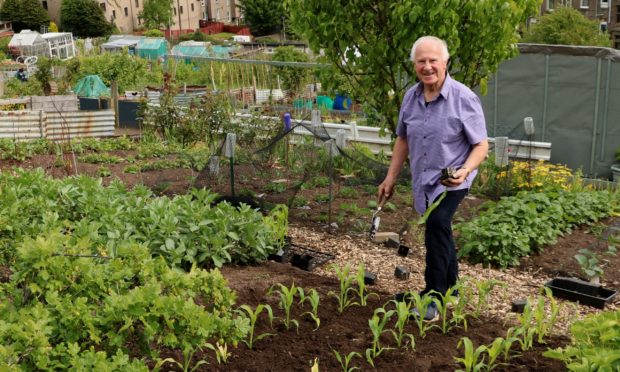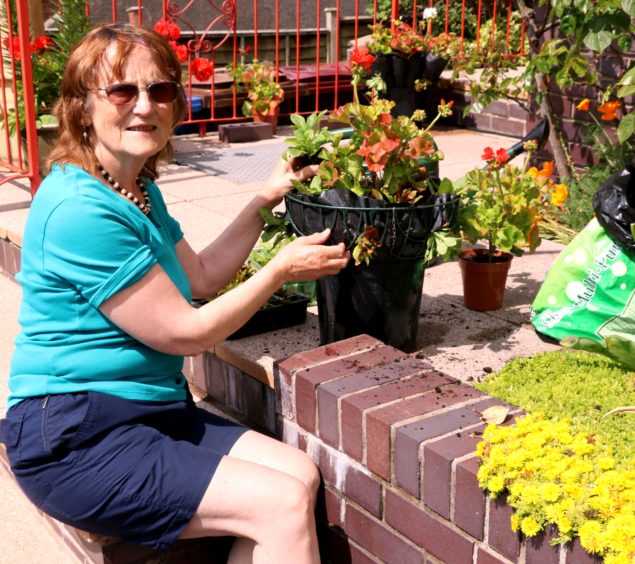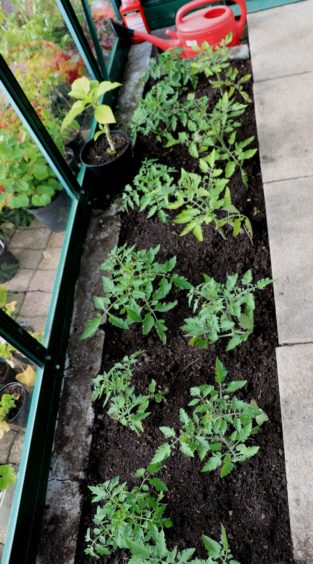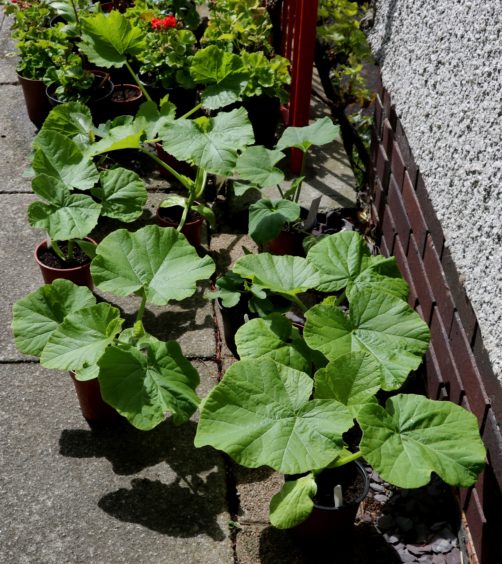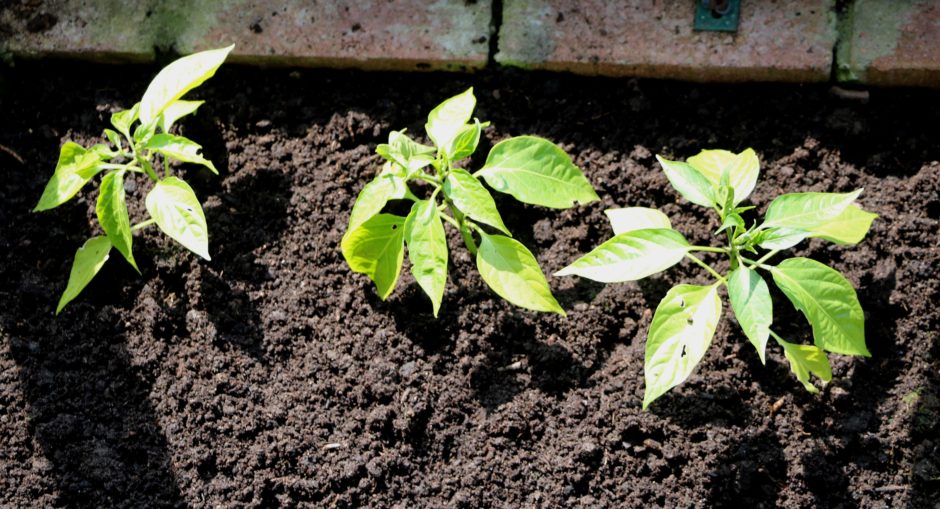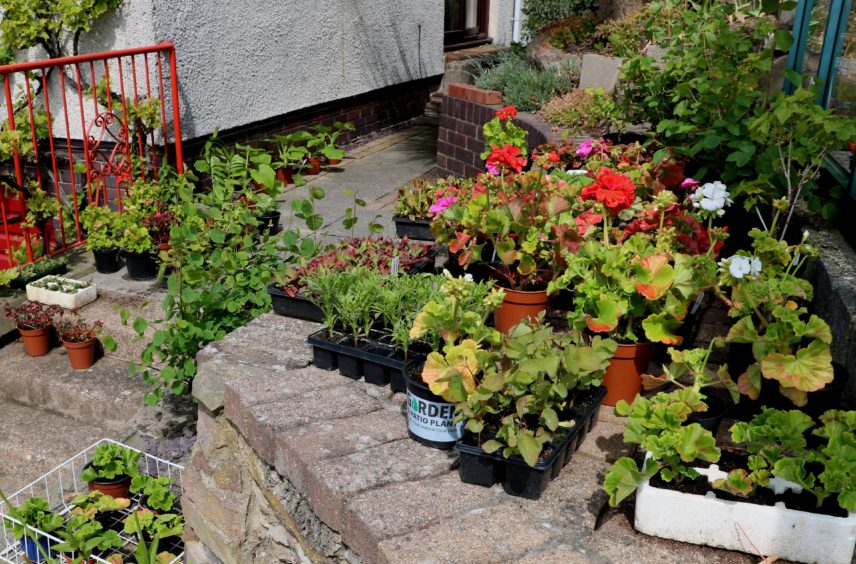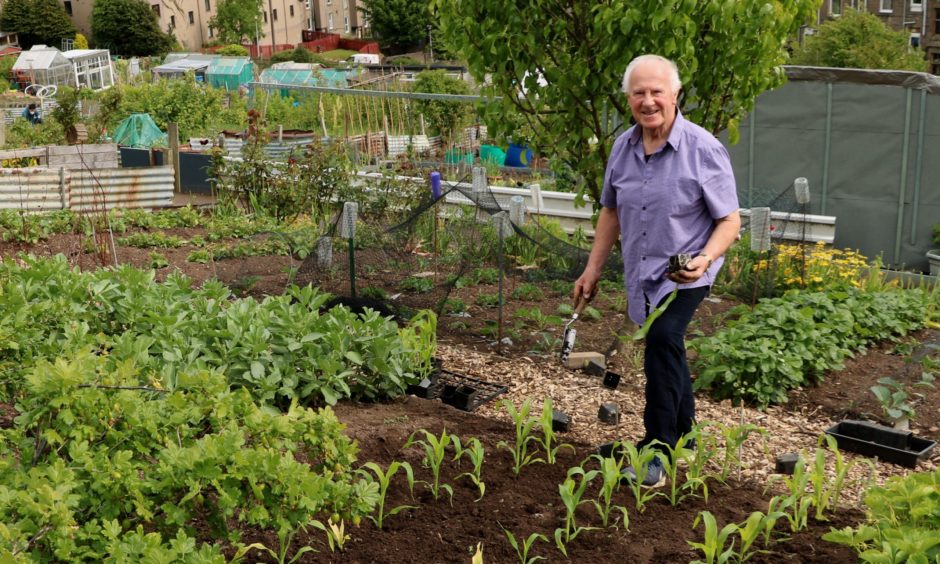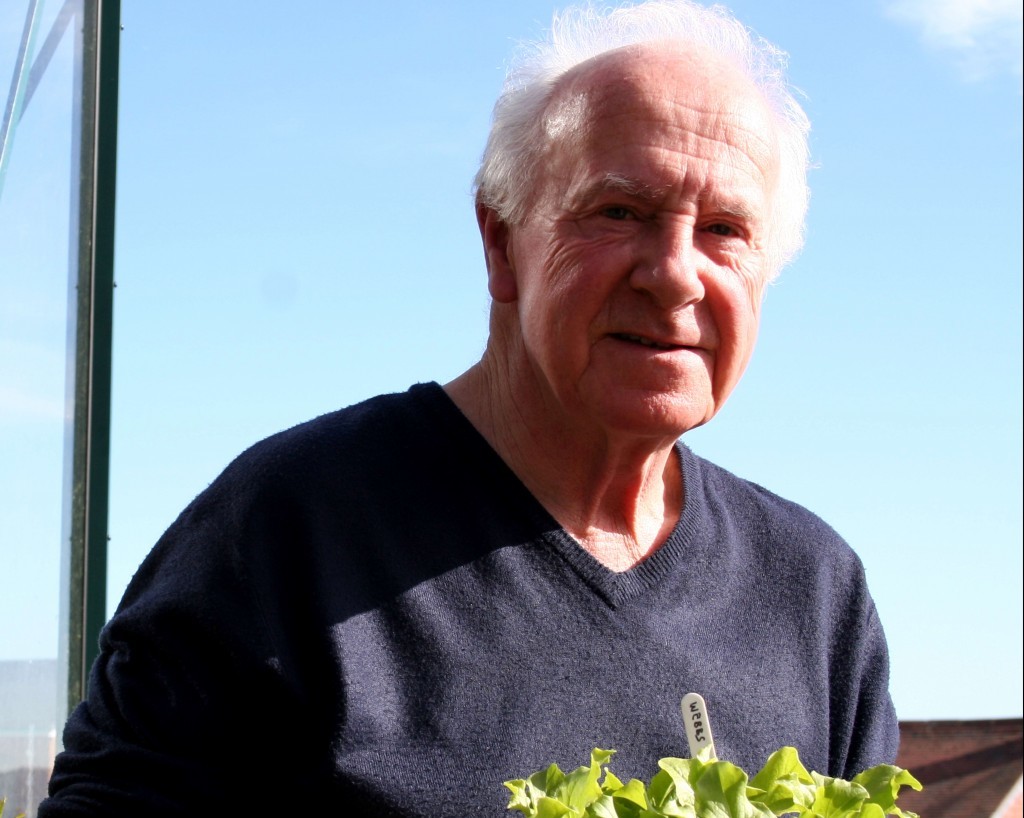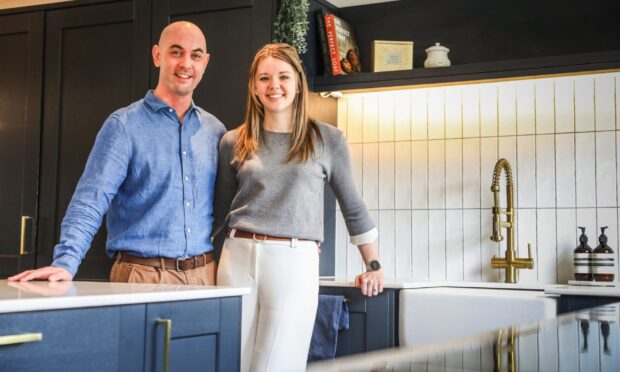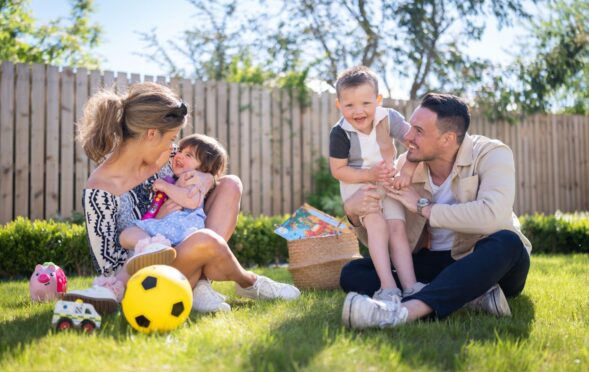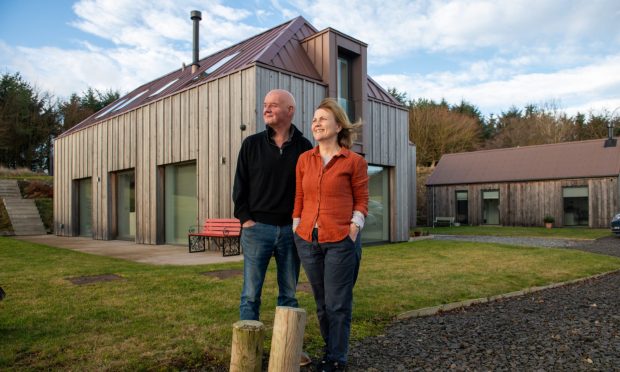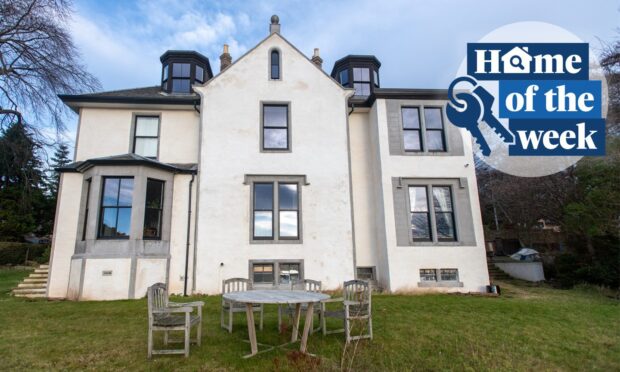The long dry spell and cool but sunny cloudless days in April and May have not been a problem for plants in the greenhouse.
Daily watering is always necessary and keeping the ventilators open during the day but closing them over night has kept temperatures just right and reduced problem of condensation.
I had lined the greenhouse with bubble polythene sheeting over the winter so the threat of frost was not a problem.
The biggest problem was space as plants grown from seed needed pricking out and later potting up.
I have a lot of tuberous begonias which are not very hardy so it was mid-May before I got them outdoors to harden off.
Marigolds, Nemesia, Angels Trumpets, salads and all the brassicas started life under glass but soon they all got hardened off.
Last to go outdoors was my sweet corn, courgettes and pumpkins.
After a week outdoors the weather changed.
It was a night’s rain followed by warm weather so planting was completed in mid May.
Cape gooseberries and peppers were however still kept under glass.
I will try growing the cape gooseberries outdoors in a sheltered border, and try some in large tubs, but the peppers will get planted out in a border under glass at the foot of my grape vines.
The clearance gave me the chance to remove the bubble polythene and let the sun shine in.
The tomato border has now been cleared of propagated plants so soil preparations could go ahead.
In the past I have grown tomatoes in pots, grow-bags and straw bales but I find those grown in soil have the best flavour, but you need to give them fertile soil.
I start by removing about three inches of top soil which gets spread amongst my shrub borders.
This is replaced with good top soil from my vegetable patch mixed with potting compost or compost from a couple of growbags.
Fertiliser is then spread over the area and the whole lot lightly dug over.
This may be a lot of hard work, but the results make it worthwhile, and I can get my daily exercise. The area is then watered so it is ready for planting the following day.
Last year I did a small trial of cherry tomatoes and this year I am growing the best from these. Alicante is still my main large tomato with Super Sweet 100 my best red cherry and Sungold my best yellow cherry.
Tomatoes get planted in two rows in a border 20 inches wide and spacing plants about 14 inches apart.
Plants are supported on polypropylene string suspended down from wires across the roof.
The plants are twisted around the string as they grow. Growth varies according to weather and six trusses are normal though in a good year I have had eight trusses on some varieties.
Side shoots on grape vines are now putting on growth, so these get pruned to one leaf almost weekly all summer.
When I start to feed the tomatoes the vines which are also growing in a border will also get a feed, but maybe not so often.
Greenfly has become a big pest not only under glass but also on all my outdoor roses.
Under glass they are all over my Peppers, Basil seedlings and Cape Gooseberries.
These get rubbed off, but I may need to get a chemical spray organised if the infestation outdoors is beyond rubbing off.
Maybe the recent climate is suiting pests, but up on the allotment the cutworms have been busy chopping off my sprouts at ground level, and I found quite a few leather jackets when planting my sweet corn.
Then I noticed about twenty sawfly larvae chewing my gooseberry leaves. This needs a daily check and a spray if they all appear on-masse as they can devour all the leaves in just a few days.
Pigeons are another big problem as everything has to get protected under nets. Pea Kelvedon Wonder however is not netted so the pigeons stopped by for a wee feed.
Wee jobs to do this week
Hanging baskets give us the opportunity to add flowers at entrance doorways and patios. I use the normal basket but line it with an old compost bag turned inside out. Add some potting compost then add a few plants around the side by pushing through slits made in the polythene. Add more compost and plant up the top with geraniums, busy lizzies, nemesia, trailing lobelia, petunias or other summer bedding plants. Make sure the hanging brackets are strong and well secured and not too high so they can be watered easily. Add a feed every three weeks or so.
